Maulik Pancholy on Taming of the Shrew, marriage and fighting Hollywood’s stereotypes
Maulik Pancholy has racked up an impressive number of credits on television, including 30 Rock and Weeds. Now he's tackling his biggest challenge yet -- playing Katherina in an all-male production of Shakespeare's Taming of the Shrew.

An assignment for a clown class at the Yale School of Drama prompted Maulik Pancholy to come out to his parents.
“It was about finding your inner-clown, the thing that’s funny about you,” he says. “We had to sing these songs about dreams in our life, just jump up on stage and start singing. I started singing about how I need to come out to my mom. That night, I went home and called my mom. It’s moments like that made me realize how intensely personal acting is, how your own life is so intricately tied to your ability to bring something to the character.”
It’s a life lesson Pancholy is bringing to his interpretation and portrayal of Katherina in the Shakespeare Theatre Company’s production of The Taming of the Shrew. Calling upon his awkward teenage years and his feelings of being different, Pancholy sees similar parallels with his character.
“I just had, especially in my teen years, this sense I wasn’t the same as everyone around me. I knew that I was a little bit different, and that other people were aware that I was a little different, and I don’t know why that was,” he says. “I think there’s elements of that that are part of the play. Kate is someone who doesn’t fit into society in the way they want her to, and as much as she is unwilling to yield to that, I think it leaves her very lonely and sad that she can’t find a place to fit in.”
As a child, Pancholy was always drawn to the arts. After high school, he majored in theater at Northwestern University, before moving to Los Angeles to try and jumpstart his career. He later moved east to attend Yale School of Drama, before finally settling in New York, which he now considers home.
It was there, almost twelve years ago, that he met his husband, Ryan. They’ve been married for two years, but Pancholy’s acting career, which takes him to Los Angeles, Washington, and elsewhere, often leads to navigating the challenges of a long-distance relationship.
“We have this rule where every three weeks, if we’re away, one of us will go out to visit the other,” he says. “Right before I was doing this play, I was in L.A. for six weeks and home for two. I was like, ‘I don’t know. Maybe I shouldn’t do it. I’ve been away for so long.’ You’d think it’d get easier the longer you’ve been together, but actually, it gets harder to be away.”
During the course of his career, Pancholy has appeared both in movies, from Hitch to See You in September, and one-time roles in major television dramas like Charmed, Law & Order: Criminal Intent, and The Good Wife. He also voiced recurring character Baljeet Tjinder in Phineas and Ferb. But his most notable roles are those of Sanjay Patel in Weeds and Jonathan, Jack Donaghy’s assistant, on 30 Rock. Both series, as well as a four-episode run on Web Therapy and a two-episode stint on The Comeback, have allowed him to work with actors like Alec Baldwin, Tina Fey, Mary-Louise Parker, and Lisa Kudrow — opportunities for which he is grateful.
“It’s such a gift,” he says. “Honestly, when you’re acting with them, you can just empty out and play along, because they’re bringing so much to the table.”
Pancholy is eagerly embracing his role as Kate in a production where the actors must transition seamlessly between Shakespeare’s original text and modern-day musical numbers.
“The difference with TV is that you don’t have a 200-page script. You have the first episode and you’re building, or the writers are building, the character as you go on,” he says. “Whereas, with a play like The Taming of the Shrew and especially with Shakespeare, there’s so much textual information.
“Shakespeare is constantly having characters play with the audience, and in some ways, it’s like getting the audience on
your side, especially when you’re in a two-person scene,” he adds. “In the wooing scene between Kate and Petruchio, there’s a big sense of him being like, ‘Can you believe her?’ and her being like, ‘Can you believe him?’ and trying to get the audience to see who’s going to come out on top. They both leave that scene feeling like they’ve won.”
His time at Shakespeare Theatre Company has also introduced him to the Washington theater scene and a number of D.C.-based actors, with whom he stars in Shrew. While the play is running, he’s living in the same building as other out-of-town actors and creative team members, a situation he compares to a stayover at summer camp. Being in the same location helps increase the familiarity and on-stage chemistry, particularly with co-star Peter Gadiot, who plays Kate’s suitor-turned-husband Petruchio.
“This play has been emotionally and physically quite demanding, so it’s not like we’re going out together every night, but we walk home together and chill for a little bit,” Pancholy says. “Even doing 30 Rock in New York, you work with the people you’re working with, and then you go home. There’s something nice about being a part of something that lives a little bit outside the workplace.”
METRO WEEKLY: Did you always have the “theater bug,” or was acting something you gravitated to as an adult?
MAULIK PANCHOLY: No, I always had it. When I was five, I was telling my parents that I wanted to be an actor. My cousins and I, we’d always put on shows for our family. Every summer, when we’d all get together, we put on these musical and dance shows. We actually charged our parents money. By junior high, I was doing community theater. I played the piano as a kid. The arts were always the thing that I just gravitated towards.
I wasn’t the most comfortable in my own skin growing up. I was kind of awkward. I was definitely a nerd. I didn’t even know how to frame my sexuality at that point, but I think other people were aware of it, so that made me uncomfortable. I was a scrawny, little Indian kid living in the Midwest, and then in Tampa, Florida. I feel like watching movies, or even playing the piano, it gave me this outlet, this thing to, in a way, disappear into. For a long time, I thought that the joy of acting is that you get to disappear. Now, as a hopefully more mature actor, I actually think that the joy of acting is that you get to show up, that you get to bring so much more of yourself to it. I would say that’s probably one of the bigger journeys that I had to take as an actor, is learning that it’s not about losing yourself in a character, but it’s about bringing yourself to the character.
MW: When did you finally come out?
PANCHOLY: It took me a while. I didn’t really admit it even to myself until my mid-twenties. For me, it was a little bit of dipping my toe in the water, doing what I wanted. Then, finally having my first boyfriend, which gave me the courage to own it to myself and to most of the people around me. But of course coming out is a always a gradual process.
MW: How did your family take it?
PANCHOLY: It took them a little while, but my mom is incredibly supportive. My dad’s been incredibly supportive. They both came to my wedding. My mom walked me down the aisle. They love my husband, Ryan. All my cousins, who I grew up with like siblings, my sister, they’re so incredibly loving and supportive. I’ve had some family members who have not been on board, which has been challenging. For the most part, I would say 98 percent of the people around me have been really incredible.
Ryan and I actually took a trip to India in 2013. We got engaged at the Taj Mahal. We met family and they all knew who Ryan was, and they all treated him like he was part of the family. In some ways, they were even more into it than some of my family in America, which is so interesting.
MW: Where did you and Ryan first meet?
PANCHOLY: We met at a pool party on Fire Island. It is not necessarily the place you’d think you’re going to meet your future husband. Certainly, when we first met, I think we thought it was just a fun day at the beach. But we met at a pool party and, this July, it’ll be twelve years we’ve been together and in September we’ll be two years married. So, yeah, it worked out. I do remember, after we had this awesome day together, leaving Fire Island and being like, “Oh, man. I wonder if anything’s going to happen with this.” Then, I think the very next weekend, we went on our first real date. He’s incredible.

MW: Whose idea was it to get engaged at the Taj Mahal?
PANCHOLY: We kind of pre-planned it. We bought rings in New York and took them with us. We’ve been together for so long and at that point, we’re like, we’re going to ask each other at the Taj Mahal. Then, our tour guide was like, “Don’t take anything of value with you because they’re going to throw all your bags.” We didn’t end up taking our rings to the Taj Mahal. The tour guide, I don’t know if he knew we were gay or a couple, but he gave us this tour and then, at the very end of it, he was like, “Alright. I’m going to leave you guys alone for twenty minutes. Walk around. Do whatever you want.” Then, he looked right at us both. “If there’s any promises you need to make to each other, now is the time to do it.” We were like, what is going on? He left us alone and suddenly, we were there. We’ve been together for so long, but we were suddenly both quite vulnerable and we didn’t really know what to do.
I think I asked first, “So, will you marry me?” It was quite beautiful. The Taj Mahal, I don’t know if you’ve ever been, but it’s massive. I’m sure there were 10,000 people, but what I remember of that moment is being quiet, alone with each other in a really nice way. He said yes and I said to him. Then, we went back to our hotel that night and exchanged rings outside of the hotel. The tour guide part of that is one of my favorites. I have no idea what he was thinking, or what he thought after he came back to get us.
MW: Where did you get married?
PANCHOLY: East Hampton. We have a house up there, and so we had a party at our house. We’re actually on a harbor, and across the harbor, there’s this really good venue which you can see from our house. We got married across the water, which is so cool.
We talked about getting married before we did. We had said that we were going to wait, we’re going to wait until it’s legal in New York. But when we got married, we’d been together at that point for ten years. So we just thought of it as a party. And when it actually happened, I was like, “Oh, I get why this tradition has lasted for so long.” It does mean something to have 140 people saying, “We love you and support you, and are witness to your relationship.”
MW: Let’s talk about The Taming of the Shrew. What should an audience member take away from your portrayal of Kate?
PANCHOLY: I’m hoping that it’s really complex. To be honest, I think sometimes it’s a little hard to articulate. The thing that people have so much trouble with in this play is Kate’s final speech. In this production and the way I’ve seen it, and the way that we’ve staged it, I think the truth that I’m finding is her ability to let go of her ego, her anger at the world, her envy of her sister, and her need to be right all the time. I think in that speech, she gets the chance to forgive. She forgives her father. That speech starts off as, “Okay, you’re betting on me. Can I do this? Is this an opportunity for me to win?” And it becomes this intensely personal thing for her, where although the words are “This is what a woman owes her husband,” I think that she’s actually talking about a very specific journey for herself, that it has taught her that she has the opportunity to be happy and to be loved, and to love, and to forgive, and that feels so much better for her than to be angry, and jealous, and vindictive.
I think that’s a truth that I get. That it’s not easy to forgive. I feel like that anger that we hold on to actually ends up hurting ourselves more than it ever hurts anyone else. That’s something that I don’t think I would’ve understood maybe five or six years ago.
MW: What have you had to let go of that’s been freeing for you?
PANCHOLY: I’d say a lot of things, to be honest. As an actor, I learned to let go of anger around certain things, the need to compete with others.

MW: It’s interesting that you say that, because acting is considered a dog-eat-dog world.
PANCHOLY: I think that is part of one of the things that I’ve seen, is you can fight, fight, fight and be like, “Motherfucker. Why didn’t I get this job?” or “That’s not fair.” Or you can say, “Oh, that’s what the world is. You get this one but you’re not going to get the next one.” You get the choice on how you want to live. I feel like Kate gets that choice in the end. It’s like, “Okay. This is the society that I’m in. This is society’s betting on what women are going to do. Am I going to win in this moment, or am I going to go back to my old way of being?” I think she actually wins.
At the end of the play, she has found true love, which very few people in that play have. She’s escaping that society. She’s not tied to the riches of Padua, the way the she was in the
beginning, and even though she abhors it, I think she was still so tied into it. She says, “Then vail your stomachs, for it is no boot,” which to me, means “put away your pride, because it’s not a big deal.” It’s not a big deal to, in any given moment, say, “You know what? I’ll do this because it gives me more freedom than holding onto something that I have to hold onto so strongly.” I think she wins in that moment.
MW: In the program for the show, it mentions that today, and even more than a hundred years ago, in the time of George Bernard Shaw, Kate’s speech would be interpreted as, “Oh my God. This is so degrading to a woman. It’s so awful.”
PANCHOLY: It’s interesting. I feel like one of the things the director wanted to do in casting all men is to take away the idea of what it’s like to hear a woman say these words. “Shakespeare in the Park” in New York City is doing an all-female production right now, which I wish I could see.
For me, I see Shrew as an independent journey about this one particular woman in this one particular situation. The more specific that becomes, I’m hoping it has greater resonance. I don’t think of her as the leader of all women. But I will say that the way we have worked this play, the women in the play find solidarity in the end.
I think that’s another way that Kate wins, because in the beginning, she has no female friends. In fact, there are only three women in this entire play. For her to leave with these other two women on her side is huge. It’s interesting to me that in this play, I don’t know if people see this, but there’s no mother. There’s literally no other woman for Kate to have a connection to.
MW: What are some of the challenges faced by actors of color?
PANCHOLY: When I first started acting right out of college, the limitation on the kind of roles that were available to me felt really challenging. I had early TV gigs. I did roles where I’m the foreign exchange student in a turban, eating weird food, burning incense, and just having to do roles that felt very two-dimensional at best, one-dimensional often, and feeling like there is really no possibility to play other things. Doing this production, and getting to play a woman, but also the lead of a Shakespeare play who’s got such a huge, emotional life, versus the foreign exchange student whose job is to make you laugh because he has an accent, that feels really important to me. Obviously, I think my career has shifted a lot from those early days to what it is now.
One of the big challenges for a person of color — and I think actually, actors who were openly gay often face this, though it’s happening less and less now — is to be able to let people know that you can play other things than the thing that they immediately see in you. I talk about this a lot when I get to colleges, but when I was at Northwestern, I was really young and the theater program was not as diverse as it probably is now. We were studying Moliere and Shakespeare, and Ibsen and Chekhov, all white playwrights, and I left thinking the world was open to me. When I got to L.A., people were like, “Oh, you’re brown. You can come in for the side character with the funny accent.” It was such a slap to the face. It was like, “The world doesn’t see me the way I see the world.” It was challenging. We still face it.
MW: Why do you think there is still that bias in Hollywood and in theater, particularly against Asian-Americans?
PANCHOLY: You know, I don’t know. I wish I knew, because I feel like if we knew exactly what it was, we could eradicate it. I will say that when I first started auditioning for TV, I would have a hard time seeing myself in the role because there were no other brown actors on TV. We just think, “Oh, that’s the way the world is,” and no one’s willing to change it. There’s a level of acceptance around that that is really damaging.
And then if you take someone who’s not a person of color, who’s much older, or is running a studio, if they can’t see it, they’re not going to allow that to happen in their film or their TV show or their theater gig. Part of it is this subtle mindset that just says, “We don’t see you.” Then, they further that by whitewashing things, like with Scarlett Johansson and Emma Stone getting to play Asian characters, and literally saying, “Well, that character doesn’t need to be Asian anymore. We’d rather see this person.” We perpetuate this idea that the world is just all white, when in fact it isn’t.
I think there’s good proof that when shows like Fresh Off the Boat or Black-ish do really well, it’s like, “Oh, look. People actually do want to see a representation of the world they live in.” We just have to be risky enough to give it to them.
MW: Is there a difference between live theater and TV in terms of casting and the limitations that are placed on you as an actor of color?
PANCHOLY: I think that theater people would like to think theater’s more open, but I don’t think it necessarily is. Certainly in theater and in a lot of Shakespeare, there’s a history of color-blind casting, but I don’t think it happens nearly as much as people would like to think it happens. In fact, because I’ve done so much TV in the last decade or so, I haven’t had the opportunity to do as much theater as I would’ve liked to, but I have actor friends in New York who complain of the same thing that I complain about in TV happening in theater all the time.
MW: Would you ever or have you ever thought of branching out of comedy and going into a serious drama?
PANCHOLY: Yeah, 100 percent. I love doing comedy. When I’m handed a TV script and it’s for a comedy, I feel like I understand the rhythms of it, like that makes sense to me, but I would 100 percent do a drama.
MW: If you could do any role, Shakespeare or otherwise, what would it be?
PANCHOLY: I am drawn to characters who seem hard on the outside, but are quite emotionally vulnerable on the inside. I think that’s true of Kate. I think that’s one of the reasons when [director] Ed [Iskandar] pressured me about doing the play and I read it, I was like, “I want to have a go with this.” So I’d be interested in that.
I will say this, I’m working on writing a TV project with one of the writers from 30 Rock and creating a role for myself. I can’t say too much about it, but I’m hoping that that’ll move forward, too. I’m trying to bring a lot of personal stuff into it, in a comedic, but a darkly comedic way. We’re in the midst of working on that script. That’s the next thing that I’m actually really excited about. Also, I think as an actor, so often waiting for the role to come along and then, when it does, you still have to deal with the director. The idea of writing and creating something where you can actually put what you want on the page is exciting.
MW: Was there a role that created a pivotal moment for you in the way you approach acting?
PANCHOLY: At the beginning of Season 3 of Weeds, my character came out of the closet. No one told me that was going to happen. I was sitting in my apartment in New York and got mailed my script. I was like, “Oh, God. My character is going to come out of the closet. What is that going to be like?” I was pretty out then, but I hadn’t really been out in a very public — I mean, like in print — kind of way. I remember just having anxiety around what it’s going to be like to play an openly gay character on TV.
It was actually one of the best things that could’ve happened, because suddenly, this character had so much life on the show and got to play some really interesting things. It’s one of those great things about facing your fears and all will be okay. I’m so grateful that they wrote that for me. Now I don’t think twice about a gay character. I mean, I do think about how that character is being used in the same way that I would think about if an Indian character is solely there to be the butt of jokes with his accent. I wouldn’t want to do it if the gay character is there to be made fun of for being gay. It’s not interesting to me. If the gay character is there to further the story and have an interesting emotional journey, yeah, hands down. Give it to me.
William Shakespeare’s The Taming of the Shrew, directed by Ed Sylvanus Iskandar, runs through June 26 at the Shakespeare Theatre Company’s Sidney Harman Hall, 610 F St. NW. For tickets and more information, call 202-547-1122 or visit shakespearetheatre.org.
Support Metro Weekly’s Journalism
These are challenging times for news organizations. And yet it’s crucial we stay active and provide vital resources and information to both our local readers and the world. So won’t you please take a moment and consider supporting Metro Weekly with a membership? For as little as $5 a month, you can help ensure Metro Weekly magazine and MetroWeekly.com remain free, viable resources as we provide the best, most diverse, culturally-resonant LGBTQ coverage in both the D.C. region and around the world. Memberships come with exclusive perks and discounts, your own personal digital delivery of each week’s magazine (and an archive), access to our Member's Lounge when it launches this fall, and exclusive members-only items like Metro Weekly Membership Mugs and Tote Bags! Check out all our membership levels here and please join us today!





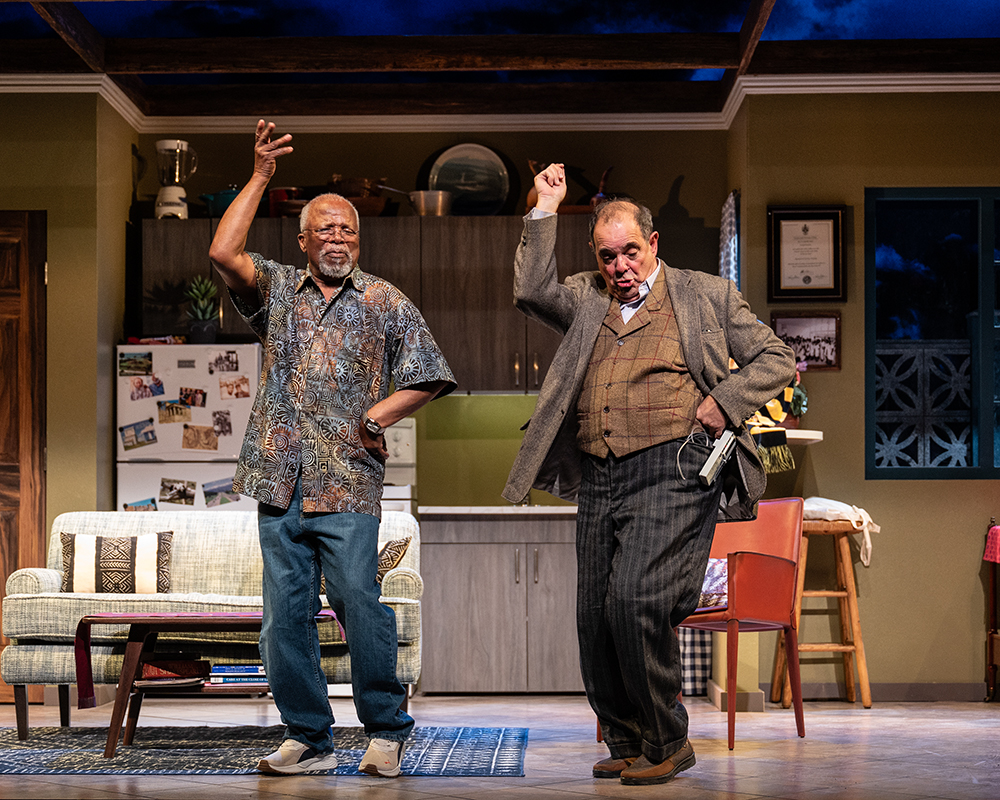
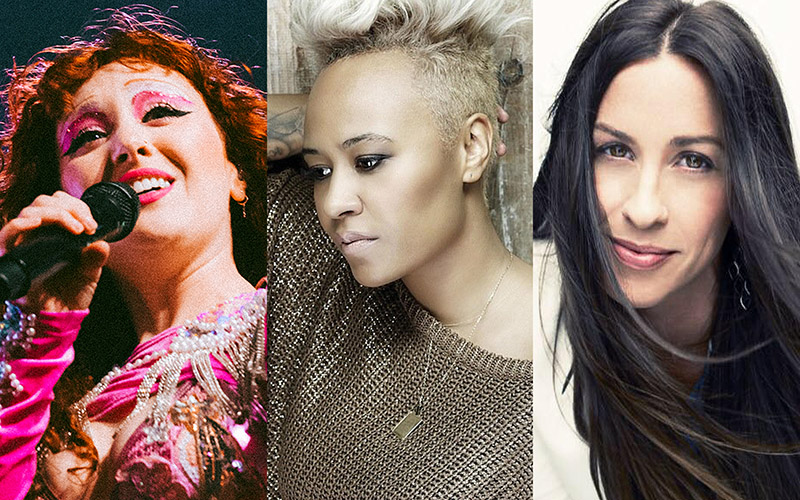














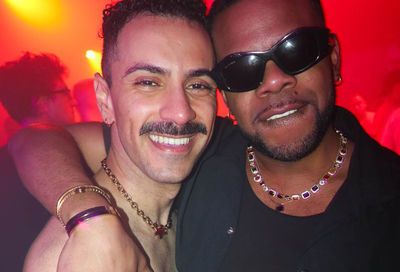
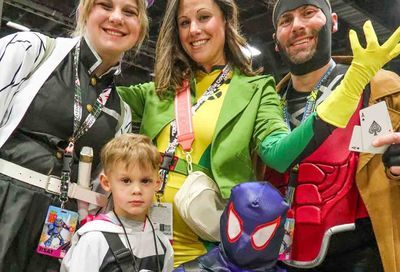
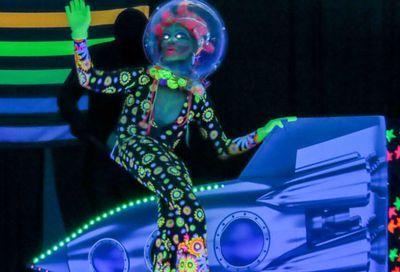
You must be logged in to post a comment.